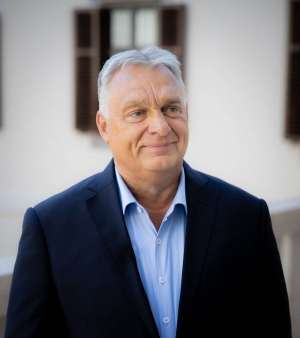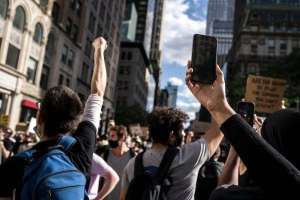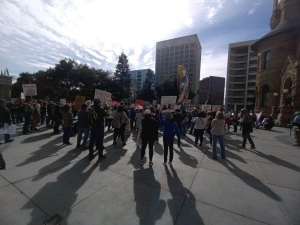
When you've painted yourself into the corner, by ignoring the mistakes of monetary policy, yours and those of others, the only "effective" measure remains prayer.
It seems the NBR has come to that stage, as shown by the recent statements of governor Mugur Isărescu, from the press conference which followed the monetary policy meeting.
Initially, the head of the NBR said that "international turmoil hit marginal economies, such as Romania, harder".
But it took this long for the governor to have that revelation? Hard to believe. Then why has the NBR continued to apply a pro-cyclical monetary policy after the crisis, when its lessons have already been painful for Romania?
Moreover, the pro-cyclical nature of the monetary and fiscal policies, even as Romania had the direct and indirect benefit of the ultra-lax monetary policy of the ECB, has led to the wasting of a new opportunity to build a flexible and robust economy.
The maintaining of the policy rate of 2.5% was described by Isărescu, as a relative strengthening of the monetary policy, in comparison to the recent decisions by the major central banks to cut rates.
Mugur Isărescu also said that "not all fiscal problems can be fought by raising rates".
That is precisely the problem. The monetary policy needs to be "adjusted" to prevent fiscal slip-ups, because the subsequent reaction could do more harm than good.
There have been other comparisons with the reference rates from neighboring countries, which are still below the inflation rate, but amid substantially different circumstances when it comes to foreign deficits.
Still, all of those things have been a part of the "collection" of excuses for the policy rate, but the real reason is the spectacular increase in the indebtedness of the private sector, especially after 2007.
After 2009 the public debt has increased as well, and even though it has remained below 40% of the GDP, it can easily enter an accelerated growth trajectory, in the event of rising borrowing costs.
The justification of the monetary policy has been supplemented by reassurances that "we, the people of the NBR, we are with the gun at our side" and that "we have a set of tools and we haven't used all of them", even if those tools are "limited".
Then came other to reassure the audience, that the "industrial numbers don't show a recession", as the decline is limited to the sectors dependent on other economies, such as that of Germany. Moreover, governor Isărescu reminded that the weight of the industry in the GDP is less than 30%.
Unfortunately, due to the downplaying of the negative trajectory of the industry, the situation is far worse. Aside from the well paid jobs, industry produces the so-called tradeable goods, a very important component of the high added value of products that get exported.
It is the industrial sectors that build Romania's foreign competitiveness, on which the correction of the foreign imbalances depends, not in the construction sector.
That is probably the reason why the divine intervention was summoned. "We pray for construction and the raw formation of capital to keep going", Mugur Isărescu told those present at the press conference.
But is the dynamic of the raw formation of the fixed capital sustainable? INS data shows an annual growth of 18% in Q2 2019, the largest of the last decade.
Aside from the very high rate, the structure of investment is another significant cause for concern.
INS data shows that the annual advance of investments in Q2 2019, of 18.7%, was caused by an increase by 37.8% of the net investments in new constructions, whereas investments in machinery have increased at an annual rate of 7.9%. Given these circumstances, the weight of investments in new constructions out of the total of net investments increased to 56.3%, from 49.4% in Q2 2018, and the weight of investments in machinery has decreased to 35.3%, from 40.8% YOY.
The same dynamic has led to a contraction of net investments in machinery in the first half of 2019 of 1.3%, amid a 30.3% increase in investments in new constructions, YOY.
The decline of net investments in machinery shows us that it is not enough to pray for the continuation of constructions and the raw formation of capital, because they might prove just false idols of the faith in perpetual economic growth.
The next day, governor Isărescu opened the works of Bucharest Security Conference with a speech in which he emphasized that "the relatively high value of the current account and fiscal deficit could even erode the foundation of the edifice that is the national economy", so "it would be far wiser to adjust them gradually, rather than leave the market forces to force a sudden correction".
The subject has also been approached in the press conference of the previous day, where Mugur Isărescu said that "we do not like a weakening of the exchange rate in order to balance the current account deficit", and that instead "monetary, fiscal and structural reform measures are needed".
Does the management of the NBR think that such a gradual correction is possible, especially amid the increase in global uncertainty? Aren't there enough historical examples, from us and abroad, which shows that the interventions to block the market forces have far worse effects, once they can't be supported?
It looks like the governor's prayer shows that the National Bank is powerless with the economic imbalances accrued over the last decade, have been substantially "stimulated" by the pro-cyclical monetary policy. Furthermore, these imbalances have "accumulated" on top of those "built" in the period prior to the crisis, whose substantial correction has been prevented by the authorities.
And if the prayer is not enough, as a supreme instrument of monetary policy, the members of the Board of Directors of the NBR should consider pilgrimages to the remains of the patron saints of central bankers, that would listen to their prayers and grant them the miracle of painless economic corrections.
< U >THE PARALLEL WITH 2008/2009< /U >
Deficits and the blackmailing of new majorities
Isărescu is deliberately and artificially maintaining an imbalanced economy of Romania so he can use it as a gambit together with his various political accomplices.
The technical recession in Romania will be announced "officially" in Romania after the first quarter of 2020, just as it was in 2009 because the electoral cycle has a major influence not just on economic policies, but also on the public communication.
Romania is already in recession (two consecutive quarters of negative growth), in terms of industrial outlook, since back in June 2019.
In terms of statements by officials, in October 2008, Isărescu was misleading the Romanian Parliament that there is no liquidity crisis and that Romania will keep growing for seven more years at 5% a year. President Băsescu and prime-minister Tăriceanu would sing along, and president Băsescu was not only fooled just a few months later by the same Isărescu into asking for the intervention of the IMF in Romania, but to into cutting wages and pensions (history proved the negative economic and political effect of the measure proposed by Isărescu and implemented by Băsescu).
Now, Isărescu is concealing the deficits and the exchange rate problem and is singing the same song as the government Dăncilă-Tăriceanu-Dragnea government through its recent statements - "So far we have no data that would show us that we are in a recession".
Economic policies including the monetary and credit is influencing the real economy with a delay, and it can of course increase or decrease the natural functioning of the economic cycles.
The obstruction of the economy, as part of the negotiation for a new term on the Board of the NBR, through blocking lending (January 2019, and November 2008, respectively) and the hike of interest rates on the downward phase of the economic cycle (December 2017, and January 2007, respectively), are the reasons why the economists were forecasting the recession of the economy many months prior to the official announcement (January 2019, and January 2008, respectively).
The macroeconomic conditions in Romania can be simplistically described through two deficits, and two of the monetary conditions through two macro prices. Both sets describe problems, as well as similar evolutions to those of the 2008/2009 period.
The real budget deficit of Romania will reach 3.8% (a 0.5% deficit for the frivolities and promises of Mrs. Dăncilă), under conditions of technical recession. And it will be a real budget deficit because, after the technocratic flop of 2016 in keeping below the 3% barrier, it will be hard, and all with the nation's interest in mind, to avoid implementing creative accounting without much ado. Isărescu raised the interest rate in 2008, being the only Central Bank all over the world which didn't cut rates, placing additional pressure on Romania's budget deficit. In 2019, until the official announcement CNSAS or the implementation of the new legislative initiatives found in the Parliament, Romania has the same governor of the NBR.
The new majority can easily be blackmailed with the expensive financing of the budget deficit (as an aside, in 2009, Romania, a country with its own currency, borrowed on average at 11% interest, whereas our friend countries would borrow in their own currency with a rate towards zero).
The coverage ratio, calculated as a ratio between the official reserves of the NBR (currency plus gold), towards the end of the period and the monthly median imports of goods and services from the period in question, will be approximately 5 months (reference 5-6 months at the end of 2008).
As a small additional detail of additional imbalance of the Romanian economy, the announcement of the 50% wage increase during the term of Tăriceanu in 2008 can be compared to the announcement of the new law of pensions during the term of Dragnea-Dăncilă-Tăriceanu in the year 2019. The markets and the real economy react to announcements, credible threats, and the government and the governor, regardless of the personal profile is believed given the importance of their position.
In term of the monetary conditions, the exchange rate, following the extended harassment by Isărescu of the parliamentary majority, has increased in real terms by 15% (the IMF only sees 10%). Whereas in October 2008 the exchange rate was moving between 3.7-3.72 amid the media manipulation by Isărescu, after the elections, in January 2009 the exchange rate has jumped to 4.2, without any attacks. The exchange rate is currently moving with a lot of straining in press conferences, in the 4.72 - 4.74 range, and it will January, after the elections, to overcome the amount of 5.
The jump is not just natural from the point of view of the overvaluation and the accumulated deficits, as well as the manner in which the hopping trajectory has helped the message of the majority which votes in the elections for the Board of Directors of the NBR.
The stability of the exchange rate is perceived by voters as an expression of correct monetary policies. That is the reason why Isărescu is keeping the exchange rate stable during the times when it needs to help political majorities' electoral goals. After the elections, the exchange rate is artificially corrected, just as artificially as it's been maintained. Corrections become necessary after a 15% real appreciation.
As an aside when discussing the future evolution of the exchange rate, Isărescu was helped in his negotiation with Dăncilă-Tăriceanu-Dragnea by elements of the community of Austrian and Chinese businesspeople. To the Austrians, Isărescu promised locking the exchange rate for the "waiting room" to the Euroaccession in the year 2021 at a value in excess of 5.5 lei/Euro.
A jump of the exchange rate in January 2020, after the change of the parliamentary majority, will be announced by Isărescu as an expression of the good economic policies of the Dăncilă-Tăriceanu-Dragnea government and as a penalty for changing the parliamentary majority.
Romania's economy is being imbalanced deliberately, so the macro prices, the exchange rate and the interest rates can be used in Isărescu's negotiations with the majorities in government.
< B >LUCIAN ISAR< /B >



























































